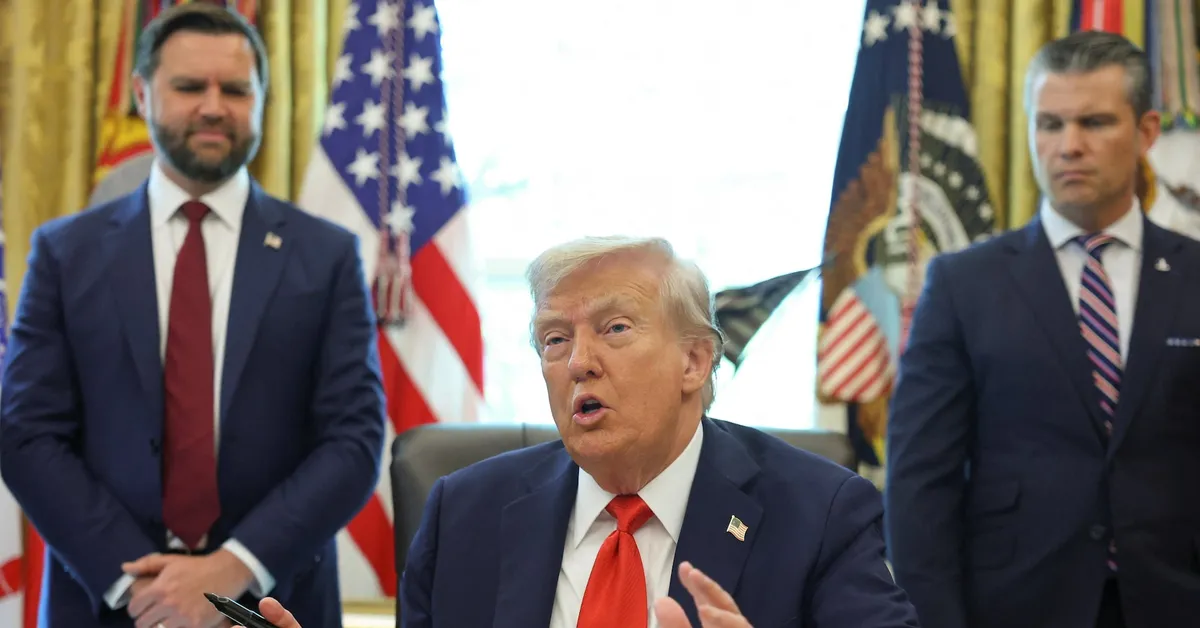
On August 25, 2023, President Donald Trump signed a significant executive order aimed at addressing the issue of flag desecration in the United States. The order directs the U.S. Attorney General to prosecute individuals who burn or otherwise desecrate the American flag, igniting a wave of criticism from advocates for free speech.
During the signing ceremony in the Oval Office, President Trump stated, "If you burn a flag, you get one year in jail, no early exits, no nothing." This strong stance signifies the administration's commitment to enforcing flag desecration laws. The executive order mandates the Attorney General to vigorously pursue legal action against violators and to seek clarification on the scope of the First Amendment concerning this issue.
The U.S. Constitution's First Amendment is designed to protect individuals' rights to free speech, and in a landmark 1989 decision, the U.S. Supreme Court ruled that burning the flag is a form of protected speech. In response to Trump's order, the Foundation for Individual Rights and Expression released a statement emphasizing the importance of free speech, stating, "You don’t have to like flag burning. You can condemn it, debate it, or hoist your own flag even higher. The beauty of free speech is that you get to express your opinions, even if others don’t like what you have to say."
The executive order not only instructs the Attorney General to prosecute flag desecration cases but also encourages referrals to state or local authorities. Additionally, it calls for the administration to take measures that could include prohibiting and terminating visas, residence permits, and naturalization processes for individuals who desecrate the flag. This aspect of the order has raised alarms among civil rights advocates and human rights experts, who express concern over the implications for free speech rights.
Since taking office, the Trump administration has faced criticism for multiple actions perceived to undermine free speech. These include threats to cut federal funding for colleges over pro-Palestinian protests, attempts to deport foreign protesters, and stricter immigration rules that could reject visa applications based on political beliefs. Critics argue that these actions undermine the very essence of free expression in America.
In his executive order, Trump characterized flag desecration as an act that embodies "contempt, hostility, and violence against our Nation." The order further asserts that prior Supreme Court rulings regarding the First Amendment do not protect actions likely to incite imminent lawless action or constitute fighting words. This assertion attempts to frame flag desecration as not merely an expression of opinion but as a provocative act against the nation.
As this executive order unfolds, it continues to spark heated debates about the balance between protecting national symbols and preserving fundamental free speech rights in the United States.